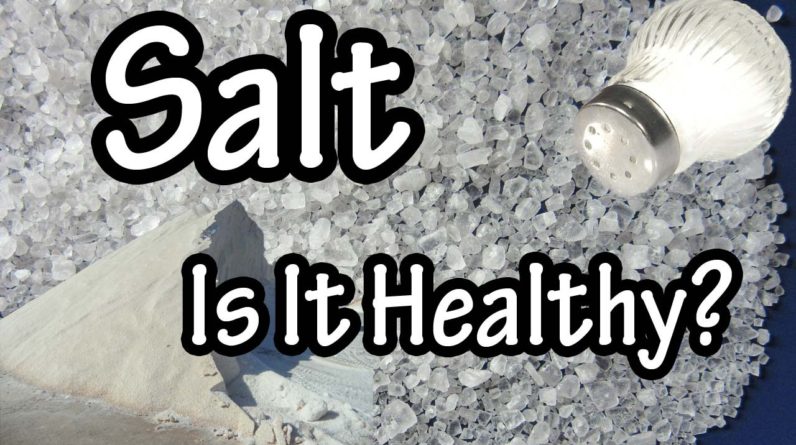
What's up dudes and what's up ladies. Bryan
here, and in this video we are going to discuss salt. Our common salt is composed
primarily of sodium chloride, 40% sodium, and 60% chloride. Salt is processed from
salt mines or the evaporation of seawater, or other mineral rich waters. It is mainly used
to add flavor to food or as a food preservative. It preserves food by absorbing water, making the
environment too dry to support mold or bacteria. Salt has no calories and contains no nutrients
other than the sodium and the chloride, however, some table salt has iodine added to it. This
is done in a preventive measure against iodine deficiency.
Anti-caking agents are also added
so it doesn't clump together, but table salt is 97 percent sodium chloride or higher. So, is
salt good for us? Let's start with sodium first, our body needs sodium, it's required for
maintaining blood pressure, a normal fluid balance, and transmitting nerve impulses, but too
much of it can cause problems. Sodium acts like a magnet for water, pulling fluid into the blood
stream, this excess fluid increases the pressure on blood vessels hence high blood pressure. The
American Heart Association recommends sodium consumption not exceed 1500 milligrams per day,
the average American consumes 3,400 milligrams per day. Now for chloride, chloride ions are
the building blocks for hydrochloric acid, hydrochloric acid made in the stomach has two main
purposes, to help destroy germs that arrive with food, and to help break down protein found in
food.

Also chloride combining with sodium forms one of the most important electrolytes in the
body. Bottom line, salt or sodium chloride has major uses in the body, they're both essential
for life, however it's all about moderation..







